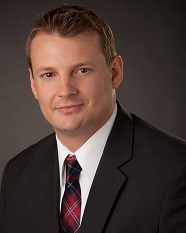From the large scale — AmSurg and Sheridan — to the small — individual physician buy-in —the ambulatory surgery center business is buzzing with transaction activity. Here are 22 key points for ASC owners considering a transaction to know.
CON law
1. 27 CON states. There are 27 states with certificate of need programs actively regulating ASC development, according to the National Conference of State Legislatures. CON law varies from state to state, but undoubtedly plays a large role in the ASC market. CON programs can dictate:
• Whether or not a project will get off the ground
• What buyers are allowed to participate in the ASC space
• When transactions can occur
• If ASCs can expand or add services
CON programs also generally allow for a period of comment on projects. This allows health providers, such as hospitals, health systems and other ASCs, to contest a project. CON boards are tasked with adjudicating and determining the fate of the ASC project. The law is designed to prevent unnecessary services, but opponents argue for allowing the free market to take hold of the reins. CON states may be more difficult to break into, but the market tends to be less saturated with other ASCs.
Most common buyers
1. Hospitals and health systems. Most hospital and health system strategies left out ASCs a few years ago, but this is no longer the case. ASCs offer hospitals and health systems access to an existing, successful vehicle for low-cost, high-quality care. As integrated and value-based care grows in importance hospitals and health systems are beginning to view ASCs as cornerstones in their strategy. From the ASC perspective, a hospital partner can offer access to improved reimbursement rates and market clout, but physician ownership and control are diluted.
 2. Management and development companies. There are a number of ASC companies, ranging from the smaller regional company to the national chain, that are actively participating in transaction activity. "The most strategic buyers are the 30-plus ASC management companies because these companies have the same goals as the ASC physician partners, namely maximizing patient satisfaction, efficiencies, economies and distributions," says Jon Vick, founder and president of ASCs Inc. The level of ownership a management company requires varies from buyer to buyer and often within each company itself.
2. Management and development companies. There are a number of ASC companies, ranging from the smaller regional company to the national chain, that are actively participating in transaction activity. "The most strategic buyers are the 30-plus ASC management companies because these companies have the same goals as the ASC physician partners, namely maximizing patient satisfaction, efficiencies, economies and distributions," says Jon Vick, founder and president of ASCs Inc. The level of ownership a management company requires varies from buyer to buyer and often within each company itself.
3. Physicians and physician groups. Individual physicians and physician groups are one of the main players in the market, which was initially built and driven by physicians. An individual physician may purchase or sell shares, or a practice can invest and divest as a whole.
4. Private equity firms. There has been increasing interest from private equity firms in the ASC industry. "Private equity firms typically seek to acquire multiple ASC locations in a given transaction or series of transactions," says Kyle Tormoehlen, ASA, MBA, co-owner of Healthcare Transaction Advisors. "By investing in multiple ASCs, these firms are able to leverage certain corporate functions (e.g., executive management, accounting, legal) and maximize their purchasing power which leads to reduced overhead. Through synergy, higher value is created"
locations in a given transaction or series of transactions," says Kyle Tormoehlen, ASA, MBA, co-owner of Healthcare Transaction Advisors. "By investing in multiple ASCs, these firms are able to leverage certain corporate functions (e.g., executive management, accounting, legal) and maximize their purchasing power which leads to reduced overhead. Through synergy, higher value is created"
Top transaction types
 1. Minority interest sale. "Minority interest transactions for physician investment/divestiture — this is by far and away the most common transaction pursued by ASCs," says VMG Health partner Kevin McDonough, CFA, and VMG Health manager Nick Taglioli. While physicians are the main drivers of minority transactions, all other common buyers can participate in this type of transaction. Hospitals may prefer majority ownership, but it is not always the case. A common management company strategy is to leave majority control in the hands of physicians, and level private equity investment tends to vary on case-by-case basis.
1. Minority interest sale. "Minority interest transactions for physician investment/divestiture — this is by far and away the most common transaction pursued by ASCs," says VMG Health partner Kevin McDonough, CFA, and VMG Health manager Nick Taglioli. While physicians are the main drivers of minority transactions, all other common buyers can participate in this type of transaction. Hospitals may prefer majority ownership, but it is not always the case. A common management company strategy is to leave majority control in the hands of physicians, and level private equity investment tends to vary on case-by-case basis.
2. Majority control sale. "The market for buyers of controlling interests in ASCs includes those above, however, generally is driven by ASC management companies and local health systems," say Mr. McDonough and Mr. Taglioli. Majority ownership affords the buyer the greatest level of control, though physicians and physician groups may outline reserved powers in the operating agreement.
3. Joint venture. Three-way joint ventures are an increasingly popular ASC model. Joint ventures can involve physicians and a management company; physicians and a hospital or physicians, a management company and a hospital. "Why is this best 'strategy?'" says Mr. Vick. "Because the hospital culture and goals are very different from the ASC culture and goals." The management company can stand as an impartial third party, equally representing both partners' goals.

4. Merger. Mergers, though not the most common form of ASC transaction, do hold a presence in the market. A merger involves bringing two or more ASCs under common ownership or consolidating multiple ASCs into a single facility, say Mr. McDonough and Mr. Taglioli.
5. HOPD conversion. When a hospital acquires all shares in an ASC, the center becomes something else entirely. "The 100 percent ownership allows the hospital to convert the freestanding ASC to a hospital outpatient department in order to take advantage of their higher reimbursement rates," says. Mr. Tormoehlen. This year, HOPD reimbursement rates are 81 percent higher than ASC rates, according to MedPAC data.
Steps to prepare
1. Ensure all financial operations and data are in order. "The first important step to take is to get your 'financial house' in order," says Mr. McDonough and Mr. Taglioli. "There are few unsophisticated buyers in today's market and sophisticated buyers are going to want to see a high level of transparency in the finances and operations of a center they are considering investing in." Messy, or lack of, financial documentation is a red flag to potential buyers.
2. Improve the value of the ASC. Maximizing the value of an ASC prior to beginning the transaction process will allow owners to extract the highest fair market bids. There are six things ASC owners can do to improve the value of their ASC prior to a transaction, according to Mr. Vick.
• Improve managed care contracts
• Recruit new physicians
• Know cases costs and how to reduce them
• Improve billing and collections
• Reduce supply costs
• Prepare a professional prospectus
3. Reach owner consensus. If all owners are on board the transaction is not only more likely to go smoothly, the post-deal ASC is also more likely to be a success. "All parties should clearly understand the goals of the transaction and have a forum to communicate what outcome is important to them," say Mr. McDonough and Mr. Taglioli. "Those individuals that are leading the transaction process should then consider such outcome requirements when considering potential transaction structures and suitors."
Additionally, united physician owners can improve an ASC's value in the eyes of potential buyers. "Showcasing your dedicated and 'invested' physician workforce will be looked upon favorably by potential buyers as they determine the sustainability of existing performance," say Mr. McDonough and Mr. Taglioli.
4. Actively participate in due diligence. Due diligence is an essential element of any ASC transaction, and it should not be performed only by the prospective buyer. "If you take a passive approach, the buyer's representatives and appraisers will dictate the process and may not uncover the full market value of your business," says Mr. Tormoehlen. "At a minimum, every ASC owner should prepare a financial forecast for their center."
ASC owners should also perform their own brand of due diligence on the line of potential buyers. Will goals align after the transaction? Is this buyer the best choice?
Blunders to avoid
1. Allowing ASC activity to slide. Successfully passing the due diligence phase does not close a transaction. "A significant mistake we often observe is for physicians at an ASC to remain highly active for those months leading up to a potential transaction only to take their foot off the gas after submitting data to potential buyers," say Mr. McDonough and Mr. Taglioli. Buyers may even request a second set of financial data prior to closing.
2. Failure to engage with the buyer. "Too often we observe centers that don't take full opportunity to tell their story and instead assume that a potential purchase price is all formulaic from a buyer's perspective. The reality is no one understands your center and your position in the market better than you," say Mr. McDonough and Mr. Taglioli. Take the opportunity to showcase your center's strengths and do not try to hide weaknesses. The more actively engaged the buyer and seller are, the more likely the transaction will close without a hitch.
3. Going solo. Any type of transaction is a complex process. Taking on a hospital partner without consulting outside help often leads to undervaluing an ASC's worth. "ASC owners do not know which companies have the best track records for helping centers improve their business and thus increase distributions," says Mr. Vick. "One of the biggest mistakes ASC owners make is to contact the hospital first and not to meet with several leading ASC management companies to develop a strategy."
4. Sharing too much or too little information. Transparency is essential to any ASC transaction, but it is key to strike the right balance. "We've seen sellers hand over all of their internal information to prospective buyers' business appraisers, only to find out afterward that the appraisal would not be shared with them," says Mr. Tormoehlen. "We've also seen sellers that will share so little information that no one will make a bid."
Opportunities on the horizon
1. Increased interest in the ASC sector. For-profit management companies remain active as they must pursue growth to satisfy their investor backers," say Mr. McDonough and Mr. Taglioli. "Health systems [are looking] to have exposure to care at all levels in the provider spectrum." Private equity firms are increasingly attracted as well, due to steady cash flows and ample opportunity for health investment.
2. Low-cost, high-quality care. "Many buyers focus on the importance of ASCs as a low-cost, high-quality setting for outpatient surgery," says Mr. Tormoehlen. This is particularly important for hospital and health system strategy.
3. High multiples. High valuation multiples are attracting more ASC buyers to the market than ever. "Activity to acquire interests in surgery centers has never been more intense, nor the multiples higher," says Mr. Vick.
4. ASC real estate. "Prices being offered for ASC real estate are the highest in decades due to low interest rates and a shrinking supply of properties for sale," says Mr. Vick. ASC real estate transaction activity is heavily focused on the selling and leasing back of ASC and medical office building real estate.
More articles on transactions and valuation issues:
Study questions usefulness of CON
5 hospital ASC plans & partnerships
12 statistics on ASC growth, 2007 to 2012
CON law
1. 27 CON states. There are 27 states with certificate of need programs actively regulating ASC development, according to the National Conference of State Legislatures. CON law varies from state to state, but undoubtedly plays a large role in the ASC market. CON programs can dictate:
• Whether or not a project will get off the ground
• What buyers are allowed to participate in the ASC space
• When transactions can occur
• If ASCs can expand or add services
CON programs also generally allow for a period of comment on projects. This allows health providers, such as hospitals, health systems and other ASCs, to contest a project. CON boards are tasked with adjudicating and determining the fate of the ASC project. The law is designed to prevent unnecessary services, but opponents argue for allowing the free market to take hold of the reins. CON states may be more difficult to break into, but the market tends to be less saturated with other ASCs.
Most common buyers
1. Hospitals and health systems. Most hospital and health system strategies left out ASCs a few years ago, but this is no longer the case. ASCs offer hospitals and health systems access to an existing, successful vehicle for low-cost, high-quality care. As integrated and value-based care grows in importance hospitals and health systems are beginning to view ASCs as cornerstones in their strategy. From the ASC perspective, a hospital partner can offer access to improved reimbursement rates and market clout, but physician ownership and control are diluted.
 2. Management and development companies. There are a number of ASC companies, ranging from the smaller regional company to the national chain, that are actively participating in transaction activity. "The most strategic buyers are the 30-plus ASC management companies because these companies have the same goals as the ASC physician partners, namely maximizing patient satisfaction, efficiencies, economies and distributions," says Jon Vick, founder and president of ASCs Inc. The level of ownership a management company requires varies from buyer to buyer and often within each company itself.
2. Management and development companies. There are a number of ASC companies, ranging from the smaller regional company to the national chain, that are actively participating in transaction activity. "The most strategic buyers are the 30-plus ASC management companies because these companies have the same goals as the ASC physician partners, namely maximizing patient satisfaction, efficiencies, economies and distributions," says Jon Vick, founder and president of ASCs Inc. The level of ownership a management company requires varies from buyer to buyer and often within each company itself. 3. Physicians and physician groups. Individual physicians and physician groups are one of the main players in the market, which was initially built and driven by physicians. An individual physician may purchase or sell shares, or a practice can invest and divest as a whole.
4. Private equity firms. There has been increasing interest from private equity firms in the ASC industry. "Private equity firms typically seek to acquire multiple ASC
 locations in a given transaction or series of transactions," says Kyle Tormoehlen, ASA, MBA, co-owner of Healthcare Transaction Advisors. "By investing in multiple ASCs, these firms are able to leverage certain corporate functions (e.g., executive management, accounting, legal) and maximize their purchasing power which leads to reduced overhead. Through synergy, higher value is created"
locations in a given transaction or series of transactions," says Kyle Tormoehlen, ASA, MBA, co-owner of Healthcare Transaction Advisors. "By investing in multiple ASCs, these firms are able to leverage certain corporate functions (e.g., executive management, accounting, legal) and maximize their purchasing power which leads to reduced overhead. Through synergy, higher value is created"Top transaction types
 1. Minority interest sale. "Minority interest transactions for physician investment/divestiture — this is by far and away the most common transaction pursued by ASCs," says VMG Health partner Kevin McDonough, CFA, and VMG Health manager Nick Taglioli. While physicians are the main drivers of minority transactions, all other common buyers can participate in this type of transaction. Hospitals may prefer majority ownership, but it is not always the case. A common management company strategy is to leave majority control in the hands of physicians, and level private equity investment tends to vary on case-by-case basis.
1. Minority interest sale. "Minority interest transactions for physician investment/divestiture — this is by far and away the most common transaction pursued by ASCs," says VMG Health partner Kevin McDonough, CFA, and VMG Health manager Nick Taglioli. While physicians are the main drivers of minority transactions, all other common buyers can participate in this type of transaction. Hospitals may prefer majority ownership, but it is not always the case. A common management company strategy is to leave majority control in the hands of physicians, and level private equity investment tends to vary on case-by-case basis. 2. Majority control sale. "The market for buyers of controlling interests in ASCs includes those above, however, generally is driven by ASC management companies and local health systems," say Mr. McDonough and Mr. Taglioli. Majority ownership affords the buyer the greatest level of control, though physicians and physician groups may outline reserved powers in the operating agreement.
3. Joint venture. Three-way joint ventures are an increasingly popular ASC model. Joint ventures can involve physicians and a management company; physicians and a hospital or physicians, a management company and a hospital. "Why is this best 'strategy?'" says Mr. Vick. "Because the hospital culture and goals are very different from the ASC culture and goals." The management company can stand as an impartial third party, equally representing both partners' goals.

4. Merger. Mergers, though not the most common form of ASC transaction, do hold a presence in the market. A merger involves bringing two or more ASCs under common ownership or consolidating multiple ASCs into a single facility, say Mr. McDonough and Mr. Taglioli.
5. HOPD conversion. When a hospital acquires all shares in an ASC, the center becomes something else entirely. "The 100 percent ownership allows the hospital to convert the freestanding ASC to a hospital outpatient department in order to take advantage of their higher reimbursement rates," says. Mr. Tormoehlen. This year, HOPD reimbursement rates are 81 percent higher than ASC rates, according to MedPAC data.
Steps to prepare
1. Ensure all financial operations and data are in order. "The first important step to take is to get your 'financial house' in order," says Mr. McDonough and Mr. Taglioli. "There are few unsophisticated buyers in today's market and sophisticated buyers are going to want to see a high level of transparency in the finances and operations of a center they are considering investing in." Messy, or lack of, financial documentation is a red flag to potential buyers.
2. Improve the value of the ASC. Maximizing the value of an ASC prior to beginning the transaction process will allow owners to extract the highest fair market bids. There are six things ASC owners can do to improve the value of their ASC prior to a transaction, according to Mr. Vick.
• Improve managed care contracts
• Recruit new physicians
• Know cases costs and how to reduce them
• Improve billing and collections
• Reduce supply costs
• Prepare a professional prospectus
3. Reach owner consensus. If all owners are on board the transaction is not only more likely to go smoothly, the post-deal ASC is also more likely to be a success. "All parties should clearly understand the goals of the transaction and have a forum to communicate what outcome is important to them," say Mr. McDonough and Mr. Taglioli. "Those individuals that are leading the transaction process should then consider such outcome requirements when considering potential transaction structures and suitors."
Additionally, united physician owners can improve an ASC's value in the eyes of potential buyers. "Showcasing your dedicated and 'invested' physician workforce will be looked upon favorably by potential buyers as they determine the sustainability of existing performance," say Mr. McDonough and Mr. Taglioli.
4. Actively participate in due diligence. Due diligence is an essential element of any ASC transaction, and it should not be performed only by the prospective buyer. "If you take a passive approach, the buyer's representatives and appraisers will dictate the process and may not uncover the full market value of your business," says Mr. Tormoehlen. "At a minimum, every ASC owner should prepare a financial forecast for their center."
ASC owners should also perform their own brand of due diligence on the line of potential buyers. Will goals align after the transaction? Is this buyer the best choice?
Blunders to avoid
1. Allowing ASC activity to slide. Successfully passing the due diligence phase does not close a transaction. "A significant mistake we often observe is for physicians at an ASC to remain highly active for those months leading up to a potential transaction only to take their foot off the gas after submitting data to potential buyers," say Mr. McDonough and Mr. Taglioli. Buyers may even request a second set of financial data prior to closing.
2. Failure to engage with the buyer. "Too often we observe centers that don't take full opportunity to tell their story and instead assume that a potential purchase price is all formulaic from a buyer's perspective. The reality is no one understands your center and your position in the market better than you," say Mr. McDonough and Mr. Taglioli. Take the opportunity to showcase your center's strengths and do not try to hide weaknesses. The more actively engaged the buyer and seller are, the more likely the transaction will close without a hitch.
3. Going solo. Any type of transaction is a complex process. Taking on a hospital partner without consulting outside help often leads to undervaluing an ASC's worth. "ASC owners do not know which companies have the best track records for helping centers improve their business and thus increase distributions," says Mr. Vick. "One of the biggest mistakes ASC owners make is to contact the hospital first and not to meet with several leading ASC management companies to develop a strategy."
4. Sharing too much or too little information. Transparency is essential to any ASC transaction, but it is key to strike the right balance. "We've seen sellers hand over all of their internal information to prospective buyers' business appraisers, only to find out afterward that the appraisal would not be shared with them," says Mr. Tormoehlen. "We've also seen sellers that will share so little information that no one will make a bid."
Opportunities on the horizon
1. Increased interest in the ASC sector. For-profit management companies remain active as they must pursue growth to satisfy their investor backers," say Mr. McDonough and Mr. Taglioli. "Health systems [are looking] to have exposure to care at all levels in the provider spectrum." Private equity firms are increasingly attracted as well, due to steady cash flows and ample opportunity for health investment.
2. Low-cost, high-quality care. "Many buyers focus on the importance of ASCs as a low-cost, high-quality setting for outpatient surgery," says Mr. Tormoehlen. This is particularly important for hospital and health system strategy.
3. High multiples. High valuation multiples are attracting more ASC buyers to the market than ever. "Activity to acquire interests in surgery centers has never been more intense, nor the multiples higher," says Mr. Vick.
4. ASC real estate. "Prices being offered for ASC real estate are the highest in decades due to low interest rates and a shrinking supply of properties for sale," says Mr. Vick. ASC real estate transaction activity is heavily focused on the selling and leasing back of ASC and medical office building real estate.
More articles on transactions and valuation issues:
Study questions usefulness of CON
5 hospital ASC plans & partnerships
12 statistics on ASC growth, 2007 to 2012


